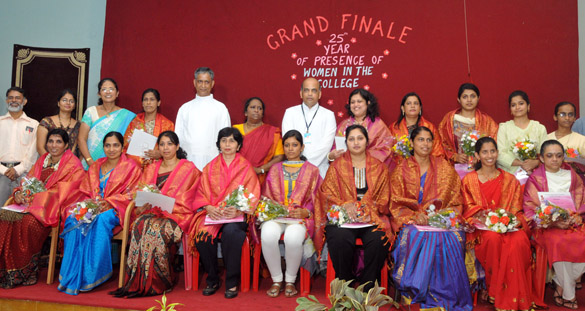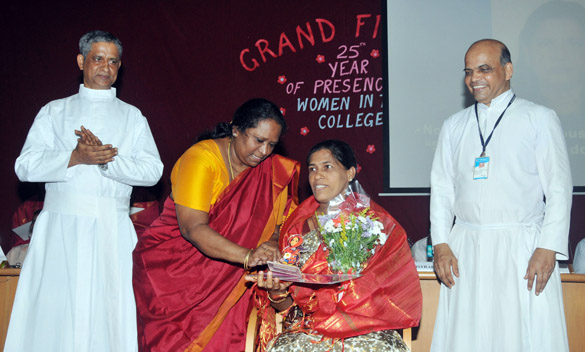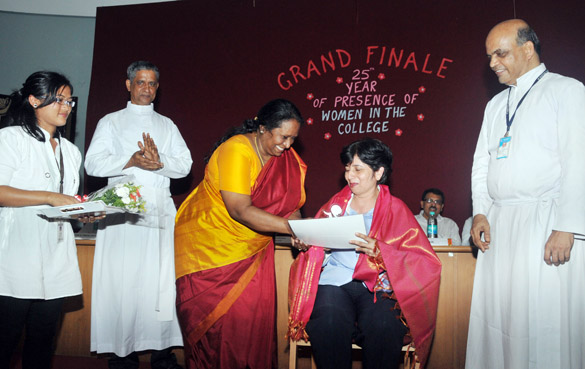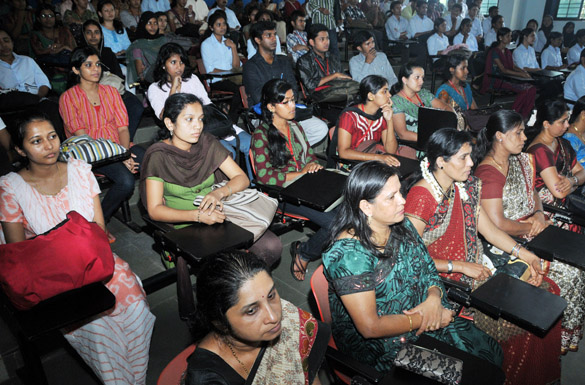
Mangalore, August 25: Educational institutions should form a committee of students, faculty members, and other Mangalore residents to respond to events such as the home-stay attack, said Ruth Manorama, winner of the Right Livelihood award in 2006 and General Secretary of Women's Voice, an organisation founded in 1985 to work for the survival rights of women in slums and the urban poor.
She was speaking as chief guest at St. Aloysius College in the city on Friday at a programme to mark 25 years since women joined the college.
Educational institutions should be in the vanguard of the process of retaining the secular fabric of Mangalore, which had numerous cultures, religions and languages. The trend of fundamentalist forces must be condemned. Other than the home-stay attack, the recent exodus of the northeast people from the Southern States was worrisome. Ghettoisation (of communities) was happening not only in other States but in Karnataka and especially in Mangalore, she said.
Referring to the home-stay attack on young people in Padil, Ms. Manorama said the attackers claimed they were saving the youth but the protecting the freedom of women and girls was the obligation of the State.
Eighteen alumni, all women achievers, including those belonging to the first batch of women (that is, of 1986) in the college were felicitated. They included teachers, researchers, doctors, sportswomen, and hospitality sector professionals.
Louella Pinto, who works in Oman in a well-known audit firm, and who was the first woman staff member of the college, recalled her days at the college. She said she participated in a range of activities including debates and sports and was able to build a rapport with her students.
Swebert D. Silva, Principal, St. Aloysius College, said that in the 25 years since women joined the college, which was a strong male bastion, women had been catalysts of change.








Comments
Add new comment